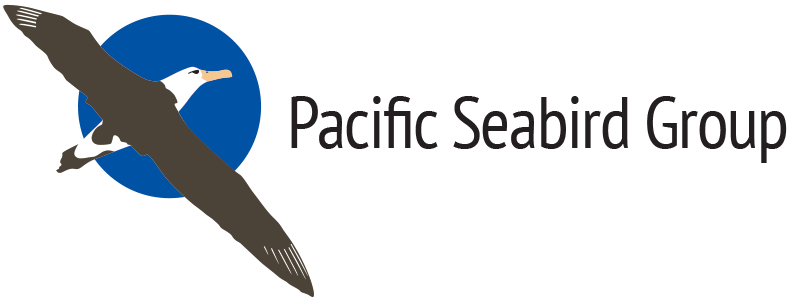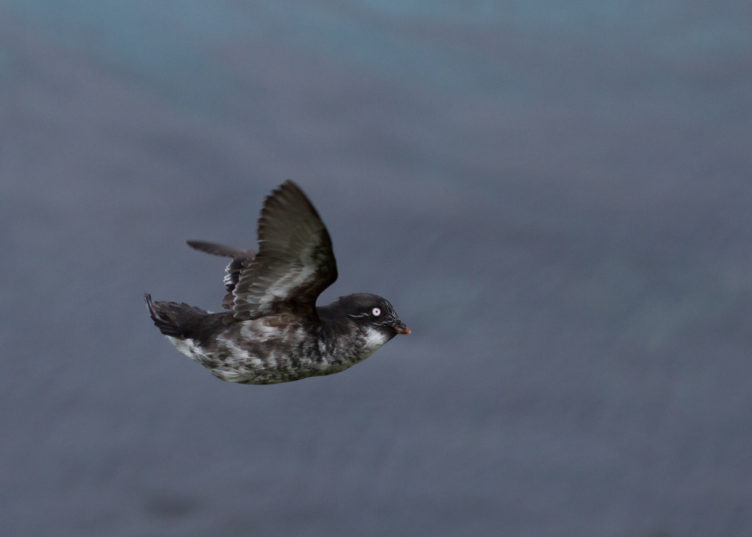Students

PSG provides many opportunities for undergraduate and graduate students studying seabirds and seabird conservation! As an PSG Student Member, you can:
- Apply for Student Research Grants (up to $1,000) to fund your research
- Apply for travel funding to help you attend our Annual Meeting
- Compete for Student Presentation and Poster Awards at the Annual Meeting
- Participate in the many student-specific activities at the Annual Meeting, such as the annual Mentor-Mentee Mixer
- Serve as the PSG Student Representative or volunteer with one of PSG’s committees to make your voice heard in PSG
- Publish your research with PSG’s Publications
- Submit original research for peer-review via Marine Ornithology
- Publish short research notes or observations (or volunteer!) with Pacific Seabirds
If you have not previously been a PSG member, you may also be eligible to apply for a 1-2 year sponsored membership via PSG HELPS. PSG is a society of professional seabird researchers and managers dedicated to the study and conservation of seabirds—join us today!
Stay in the loop! The Pacific Seabird Group maintains an email list for information exchange about Pacific seabirds. The email list is open to everyone, but does require adherence to PSG’s Code of Conduct. To join the email list, click here.
Ready to dive in? Contact the Communications Committee to learn more: communications@pacificseabirdgroup.org.
PSG Student Member Highlights

Lindsay Lalach,
Simon Fraser University
I’m a Master’s student at Simon Fraser University studying the winter movement foraging ecology of Brandt’s Cormorants, a pelagic seabird found along the Pacific coast of North America. My research combines animal movement modelling with high-resolution oceanographic data to better understand how these birds use their marine environment during the non-breeding season. Using Hidden Markov Models (HMMs), I analyze GPS and dive data collected from tagged individuals to infer behavioural states like resting, foraging and transit. This work takes place in the Salish Sea, a dynamic and ecologically rich marine ecosystem. Ultimately, my goal is to identify key foraging habitats and better understand how environmental conditions influence seabird behaviour in winter.

Yun-Xuan Lin,
Taiwan & Midway Atoll
I’m currently studying the personalities of black-footed and Laysan albatrosses. My focus is on examining their boldness to determine whether bold and shy individuals exhibit different foraging strategies and distribution patterns. Additionally, I plan to use citizen science data to map the distribution of short-tailed albatrosses near Taiwan.
Photo credit: A perfect spot for a photograph on Midway, thanks for Lisa and Calvin!

Ariel-Micaiah Heswall,
University of Auckland
For my Honour’s work and carrying on with my PhD, I study seabird sensory ecology. I explore sensory traps and threats to seabirds including bycatch, lights, and plastics from their own sensory perspective. I tend to work with a broad range of seabirds, generally with Procellariformes. I conduct my fieldwork in New Zealand on remote islands in the Hauraki Gulf including the pest free island of Te-Hauturu-O-Toi, Tirititiri Matangi, Burgess Island, and other coast peninsulas where the seabirds breed. I also conduct some research at the Museum where I analyze the morphology and sensory anatomy of the seabirds. This photo is an image of me taken by Brian Wijaya when we were conducting some light attraction experiments on Tiritiri Matangi, where I was holding Common Diving Petrel chick from a nest box.
Do you want to be PSG’s next featured Student Member? Or would you like to nominate someone? Fill out the form here!







